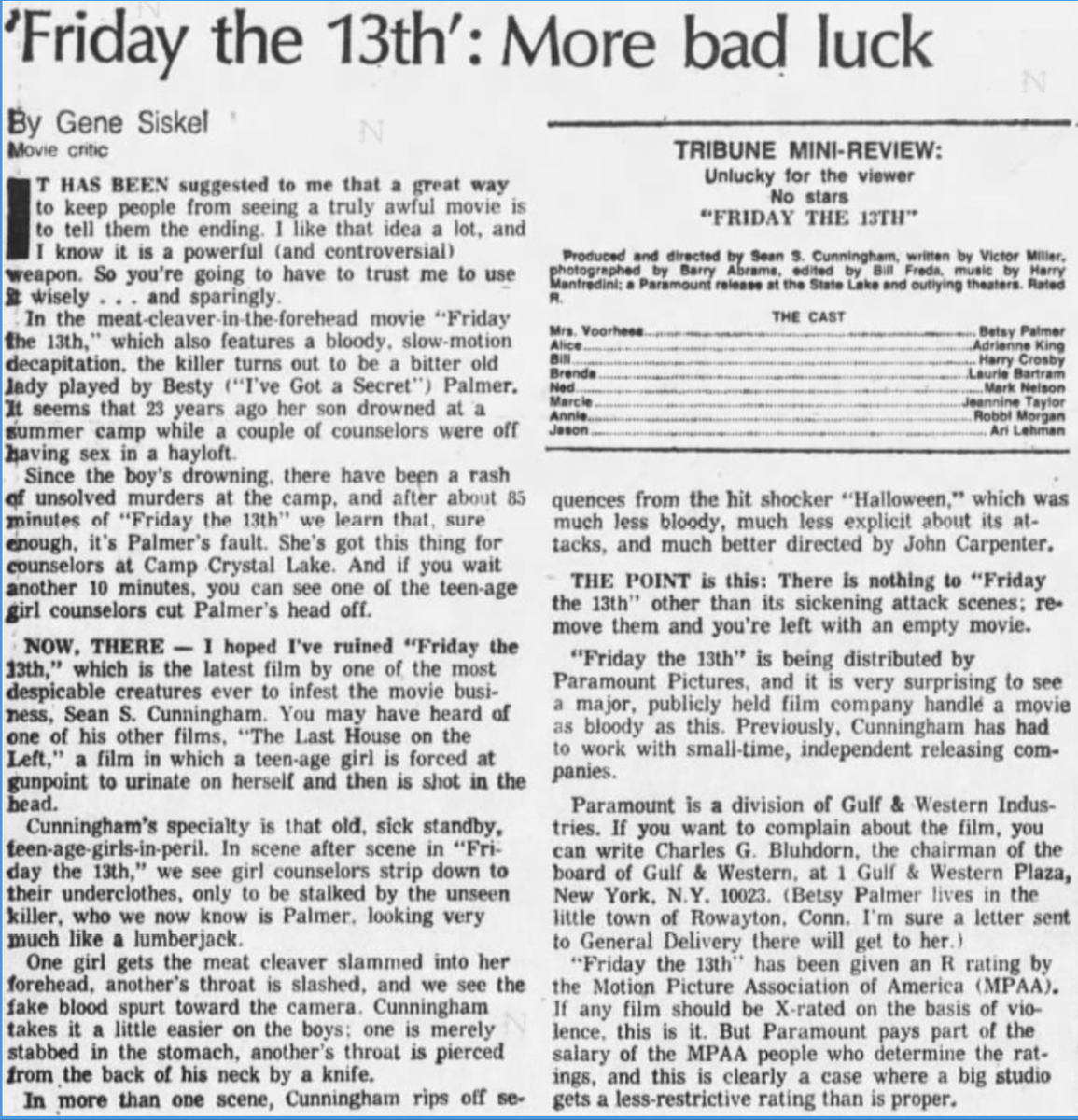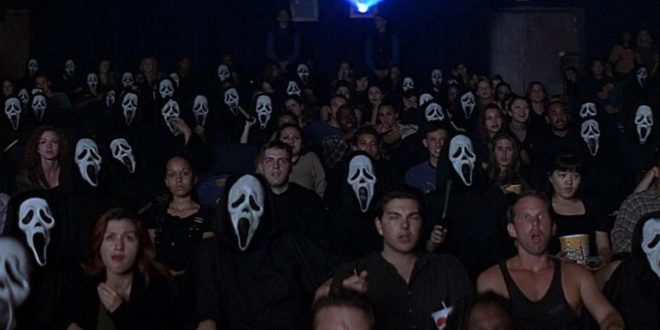What makes Freddy Krueger an iconic horror villain?
I thought it would be fun to look at a specific horror icon and examine the psychology behind their appeal.
For the general background on this, see my recent thread:
So, why is Freddy so great?
1/🧵
I thought it would be fun to look at a specific horror icon and examine the psychology behind their appeal.
For the general background on this, see my recent thread:
https://twitter.com/MorbidPsych/status/1559262040937574400?s=20&t=9l54mM2SYeQgCMJlXXRkwA
So, why is Freddy so great?
1/🧵
Let's start with his looks.
Freddy loves kids, has a great sense of fashion and is, in some ways, the man of your dreams. However, I think we can all agree that he might not fare too well on Tinder.
Rather than masking his face, Freddy proudly shows it.
2/🧵
Freddy loves kids, has a great sense of fashion and is, in some ways, the man of your dreams. However, I think we can all agree that he might not fare too well on Tinder.
Rather than masking his face, Freddy proudly shows it.
2/🧵

When you first saw these photos, you probably had a similar reaction as when you saw Freddy’s face. You likely experienced a feeling of disgust.
This response is part of the behavioral immune system — it helps us avoid infections.
Freddy's looks trigger this response
3/🧵
This response is part of the behavioral immune system — it helps us avoid infections.
Freddy's looks trigger this response
3/🧵

Now, Freddy got his scars from burns, so his face is inadvertently triggering the disgust response.
However, other monsters use the disgust response. Zombies, for example, give off honest cues of disease. It's part of the reason why they are iconic horror monsters.
4/🧵
However, other monsters use the disgust response. Zombies, for example, give off honest cues of disease. It's part of the reason why they are iconic horror monsters.
4/🧵
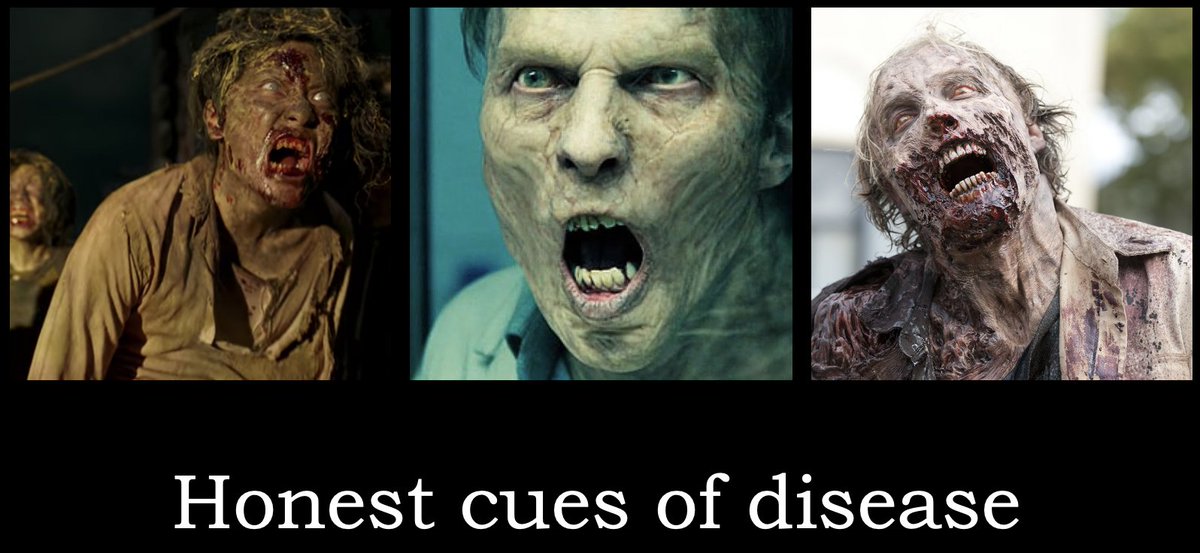
As iconic as Freddy’s face might be, even more iconic is his glove.
It’s changed a bit over the years, but the essence has stayed the same — a leathery, skin-like glove with bladed fingers.
Why the razor glove? It's a pretty inefficient killing tool.
Why is it iconic?
5/🧵
It’s changed a bit over the years, but the essence has stayed the same — a leathery, skin-like glove with bladed fingers.
Why the razor glove? It's a pretty inefficient killing tool.
Why is it iconic?
5/🧵

The simple answer is that Freddy’s glove taps into a deeply rooted fear of predators. In particular, our fear of sharp teeth and sharp claws that are nearly universal among predators.
Wes Craven knew this, and was intentional about this design. He wanted a "primal threat."
6/🧵

Wes Craven knew this, and was intentional about this design. He wanted a "primal threat."
6/🧵


Freddy gives a 1-2 punch that makes him an effective haunter of nightmares.
His face triggers deeply rooted feelings of disgust and leads the audience to feel revulsion.
His bladed glove taps into evolved primal fears relating to predators.
What about his behaviors?
7/🧵
His face triggers deeply rooted feelings of disgust and leads the audience to feel revulsion.
His bladed glove taps into evolved primal fears relating to predators.
What about his behaviors?
7/🧵

Freddy is a very effective stalker. He hides in the shadows or takes on the shape of other people or objects.
Like his razor glove, stalking triggers anti-predator responses.
Most importantly, he stalks his victims when they are at their most helpless — in their dreams.
8/🧵
Like his razor glove, stalking triggers anti-predator responses.
Most importantly, he stalks his victims when they are at their most helpless — in their dreams.
8/🧵

As he’s toying with his victims, Freddy loves to laugh at them.
He’s the master of the evil laugh.
Although the evil laugh is common to villains, Freddy is really the only classic slasher who uses this to convey how evil he is.
9/🧵
He’s the master of the evil laugh.
Although the evil laugh is common to villains, Freddy is really the only classic slasher who uses this to convey how evil he is.
9/🧵
To better understand why the evil laugh is important, we first have to understand regular laughter.
Laughter signals play and intrinsic enjoyment at some situation. It also tends to be involuntary – sometimes you can’t help but laugh.
But what about evil laughter?
10/🧵
Laughter signals play and intrinsic enjoyment at some situation. It also tends to be involuntary – sometimes you can’t help but laugh.
But what about evil laughter?
10/🧵

Villains use the signaling aspect of laughter to convey how evil they are. @JensKC has done some interesting research on this.
An evil laugh removes any doubt that a harmful action might have some source other than pure pleasure.
Freddy enjoys terrorizing his victims.
11/🧵

An evil laugh removes any doubt that a harmful action might have some source other than pure pleasure.
Freddy enjoys terrorizing his victims.
11/🧵
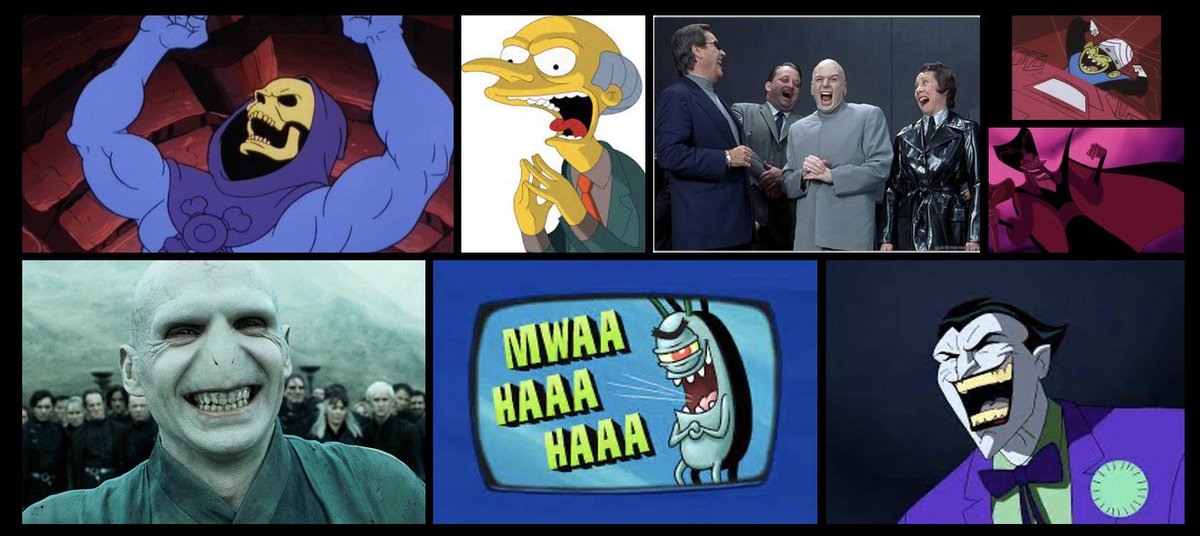
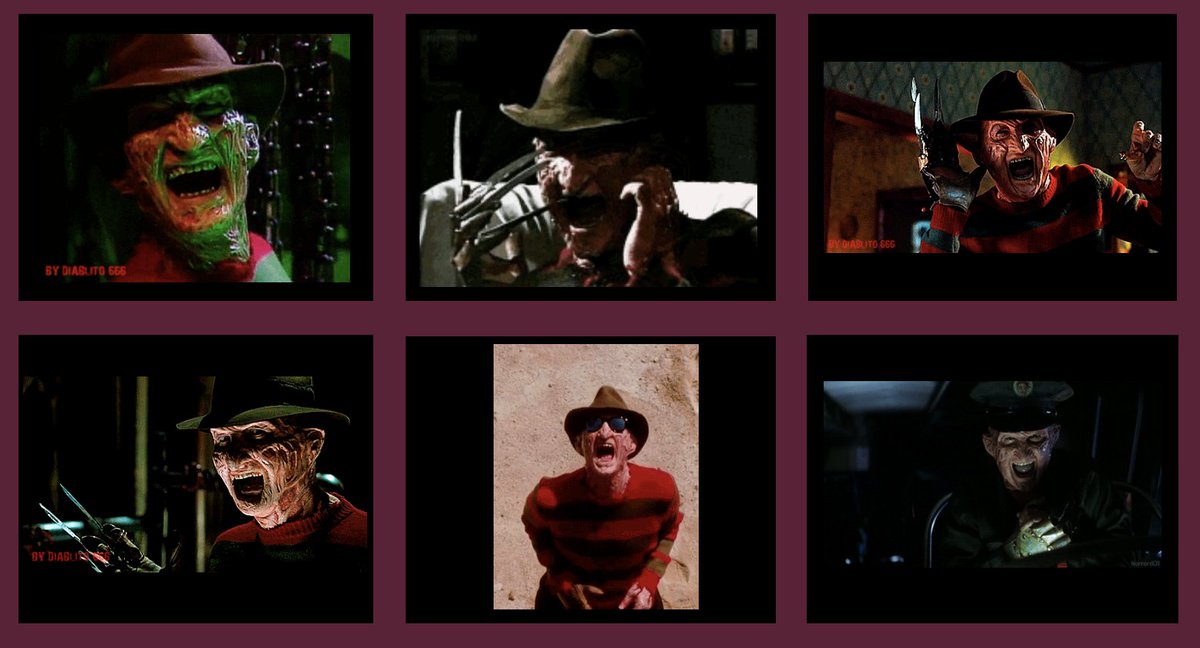
Freddy also triggers all four aspects of morbid curiosity: minds of dangerous people, paranormal danger, violence, and body violation.
See here for more info on morbid curiosity: sciencedirect.com/science/articl…
This makes him unavoidably alluring.
12/🧵



See here for more info on morbid curiosity: sciencedirect.com/science/articl…
This makes him unavoidably alluring.
12/🧵




So to recap: Freddy is a horror villain icon because he:
1. Elicits disgust
2. Mimics predators through his razor glove and stalking
3. Signals his evil nature with his laughs
4. Effectively triggers all 4 domains of morbid curiosity
Does this seem right, @LangenkampH?
end/🧵
1. Elicits disgust
2. Mimics predators through his razor glove and stalking
3. Signals his evil nature with his laughs
4. Effectively triggers all 4 domains of morbid curiosity
Does this seem right, @LangenkampH?
end/🧵
@DreadCentral
@BDisgusting
@NOFSpodcast
@CryptTV
@omgchomp
@RecFearLab
@FANGORIA
@FreddyInSpace
@horrorhomeroom
@FacultyofHorror
@choptopmoseley
@TheMutantFam
@TheRealElvira
@therealjoebob
@BDisgusting
@NOFSpodcast
@CryptTV
@omgchomp
@RecFearLab
@FANGORIA
@FreddyInSpace
@horrorhomeroom
@FacultyofHorror
@choptopmoseley
@TheMutantFam
@TheRealElvira
@therealjoebob
Suppose I should also ask @RobertBEnglund if this seems accurate 😅
• • •
Missing some Tweet in this thread? You can try to
force a refresh










